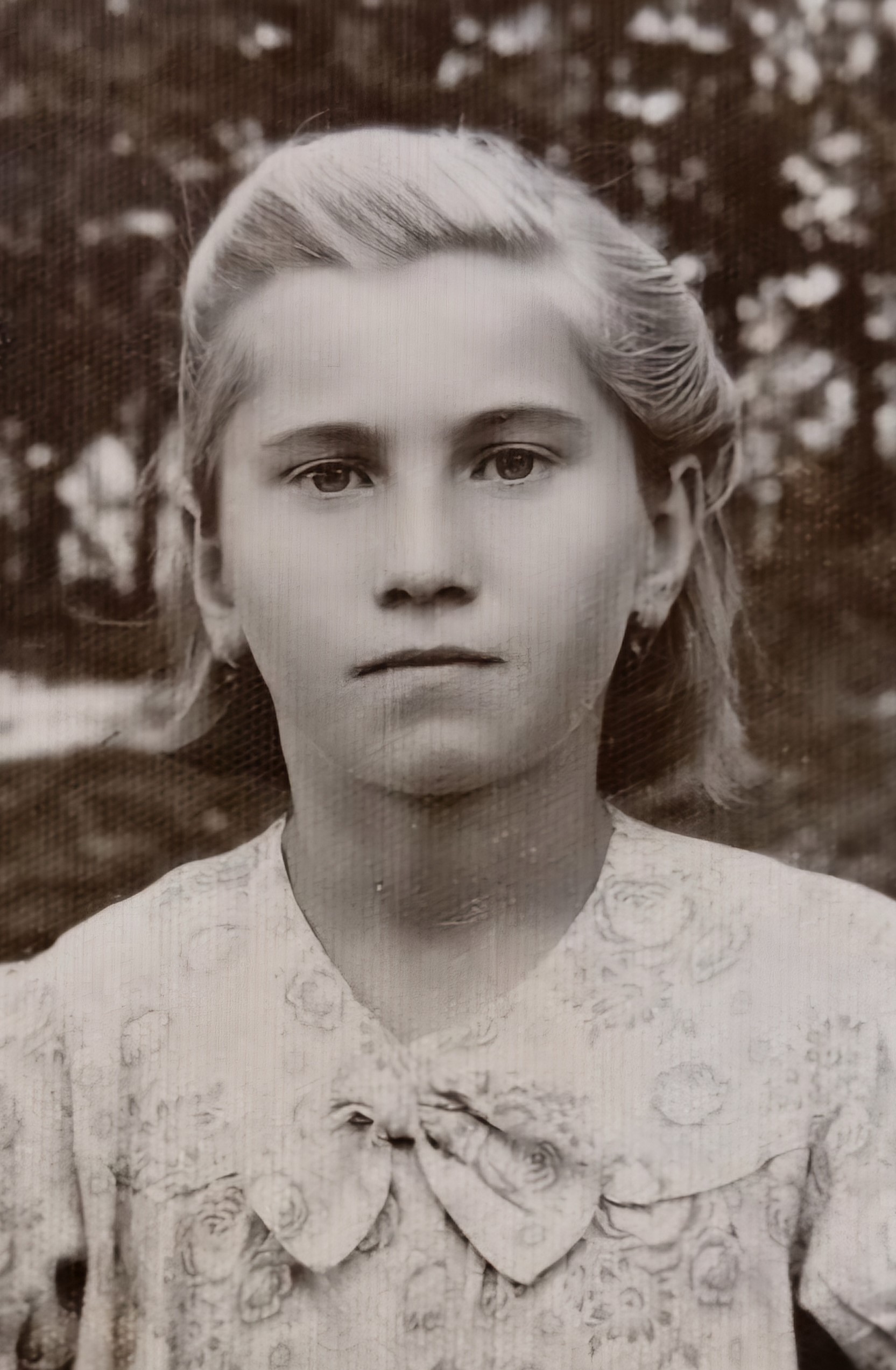Where a ball was rolling, there I was

Download image
Emílie Švecová was born as Emílie Nouzová on 12 April 1935 in Česká Huleč in Volhynia to a family of Czech emigrants. Her ancestors emigrated from Bohemia to present-day Ukraine in the 1870s. Emílie had six older siblings, of whom only her sister Ludmila and she survived to adulthood. The Nouza family had a farm, which meant that everyone, including the children, had to work hard. The war has left Emílie with terrible memories to this day; she remembers the nightly visits of groups of Bandera´s army, and the fear that the tragic fate of the Huleč Jews evoked in her. Two years after the end of the war, the family decided to emigrate to Czechoslovakia. They left by train with other Volhynian Czechs. After a month’s journey, they were briefly housed in a collection camp in Bochov near Karlovy Vary before they chose and were officially assigned the farm left by the displaced Germans. Part of the Nouza family still lives in Kryry near Louny. After finishing primary school, Emílie trained as a spinner in Nejdek near Karlovy Vary and worked in the local Worsted Yarn Factory. She was active in sports, playing volleyball and table tennis. After her marriage, she moved to Starý Plzenec, where she was living at the time of the recording in 2024. She worked as a worker in the Plzenec Metalworks until her retirement.













